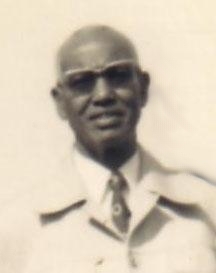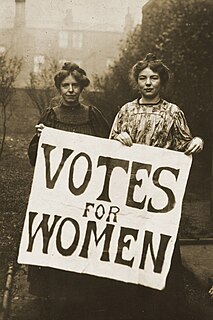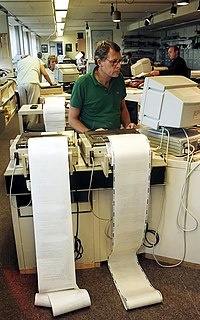
Politics of Djibouti takes place in a framework of a presidential representative democratic republic, whereby the executive power is exercised by the President and the Government. Legislative power is vested in both the Government and the National Assembly. The party system and legislature are dominated by the socialist People's Rally for Progress. In April 2010, a new constitutional amendment was approved. The President serves as both the head of state and head of government, and is directly elected for single six-year term. Government is headed by the President, who appoints the Prime Minister and the Council of Ministers on the proposal of the latter. There is also a 65-member chamber of deputies, where representatives are popularly elected for terms of five years. Administratively, the country is divided into five regions and one city, with eleven additional district subdivisions. Djibouti is also part of various international organisations, including the United Nations and Arab League.

Ismaïl Omar Guelleh is the current President of Djibouti, in office since 1999. He is often referred to in the region by his initials, IOG.

Dileita Mohamed Dileita is a Djiboutian politician who was the Prime Minister of Djibouti from 7 March 2001 to 1 April 2013. He was Vice-President of the People's Rally for Progress (RPP), the governing political party, until 2012. He also served as President of the Union for the Presidential Majority (UMP), the governing coalition. In June 2014, Dileita was appointed as the African Union's Special Envoy for Libya.
The People's Rally for Progress is a political party in Djibouti. It has dominated politics in the country since 1979, initially under the rule of President Hassan Gouled Aptidon. Today it is led by President Ismail Omar Guelleh and is in a coalition government with Front for the Restoration of Unity and Democracy (FRUD) and other parties.
The National Democratic Party is a political party in Djibouti. It was founded as an opposition party in 1992 by Aden Robleh Awaleh, who remains the party's president. It was part of the ruling coalition in 2005, but has since rejoined the opposition against President Ismaïl Omar Guelleh.

National-level elections in Djibouti are held for the President and the unicameral National Assembly.
Aden Robleh Awaleh is a Djiboutian politician and President of the National Democratic Party (PND). He is currently a member of the National Assembly of Djibouti.

The 2003 Djiboutian parliamentary election took place in Djibouti on 10 January 2003 to elect the National Assembly of Djibouti. The ruling coalition of President Ismail Omar Guelleh won all 65 seats in the election defeating an opposition coalition.

Presidential elections were held in Djibouti on 9 April 1999. Following the retirement of Hassan Gouled Aptidon, who had served as President since independence in 1977, his nephew Ismail Omar Guelleh won the nomination of the ruling People's Rally for Progress. His only opponent was Ahmed-Idriss Moussa who ran as an independent, with the support of the National Democratic Party-Democratic Renewal Party coalition. The result was victory for Guelleh, who won 74% of the vote.

Voters in Djibouti re-elected President Ismail Omar Guelleh by an 80% margin in that nation's April 8, 2011 presidential election. He defeated Mohamed Warsama Ragueh, an attorney and former judge who took 19% of the vote.

The 2011 Djiboutian protests were widespread demonstrations and riots that took place between January and March 2011 in Djibouti, situated in the Horn of Africa. A member of the Arab League, the protests in Djibouti showed a clear influence from the concurrent Arab Spring protests in North Africa and the Arabian peninsula. The demonstrations ended after mass arrests and the barring of international observers.
Ahmed-Idriss Moussa is a politician from Djibouti who served in the French National Assembly from 1962-1967. An independent, he was the main opposition candidate in the 1999 presidential election against President Ismaïl Omar Guelleh.

The issue of human rights in Djibouti, a small country situated within the Horn of Africa, is a matter of concern for several human rights organizations. In its 2011 Freedom in the World report, Freedom House ranked Djibouti as "Not Free", a downgrading from its former status as "Partly Free". The nation most recently saw martial violence in 2008, in the form of border clashes with neighbouring Eritrea.
The following lists events that happened in 2005 in Djibouti.

Presidential elections were held in Djibouti on 8 April 2016. Incumbent President Ismaïl Omar Guelleh was re-elected for a fourth term, receiving 87% of the vote in the first round.
Mohamed Warsama Ragueh is a Djiboutian lawyer and former judge. He was the president of the Constitutional Council and a candidate in the 2011 presidential election.He could only secure 19% of the vote losing to Ismail Omar Guelleh who won 80% of the votes. cast Djibouti's opposition coalitions boycotted the election, saying it would not be free and fair, leaving only President Guelleh and Ragueh, who had served as President of Djibouti's Constitutional Council in 2005. Ragueh complained about irregularities in the voting.
Freedom of the press in Djibouti is not specifically mentioned by the country's constitution. However, Article 15 of the Constitution of Djibouti] does mention an individual's right to express their opinion "...by word, pen, or image..." and notes that "these rights may be limited by prescriptions in the law and in respect for the honour of others."
The First Lady of Djibouti is the spouse of the President of Djibouti. The present first lady is Kadra Mahamoud Haid, wife of President Ismaïl Omar Guelleh. Guelleh assumed office on 8 May 1999.











